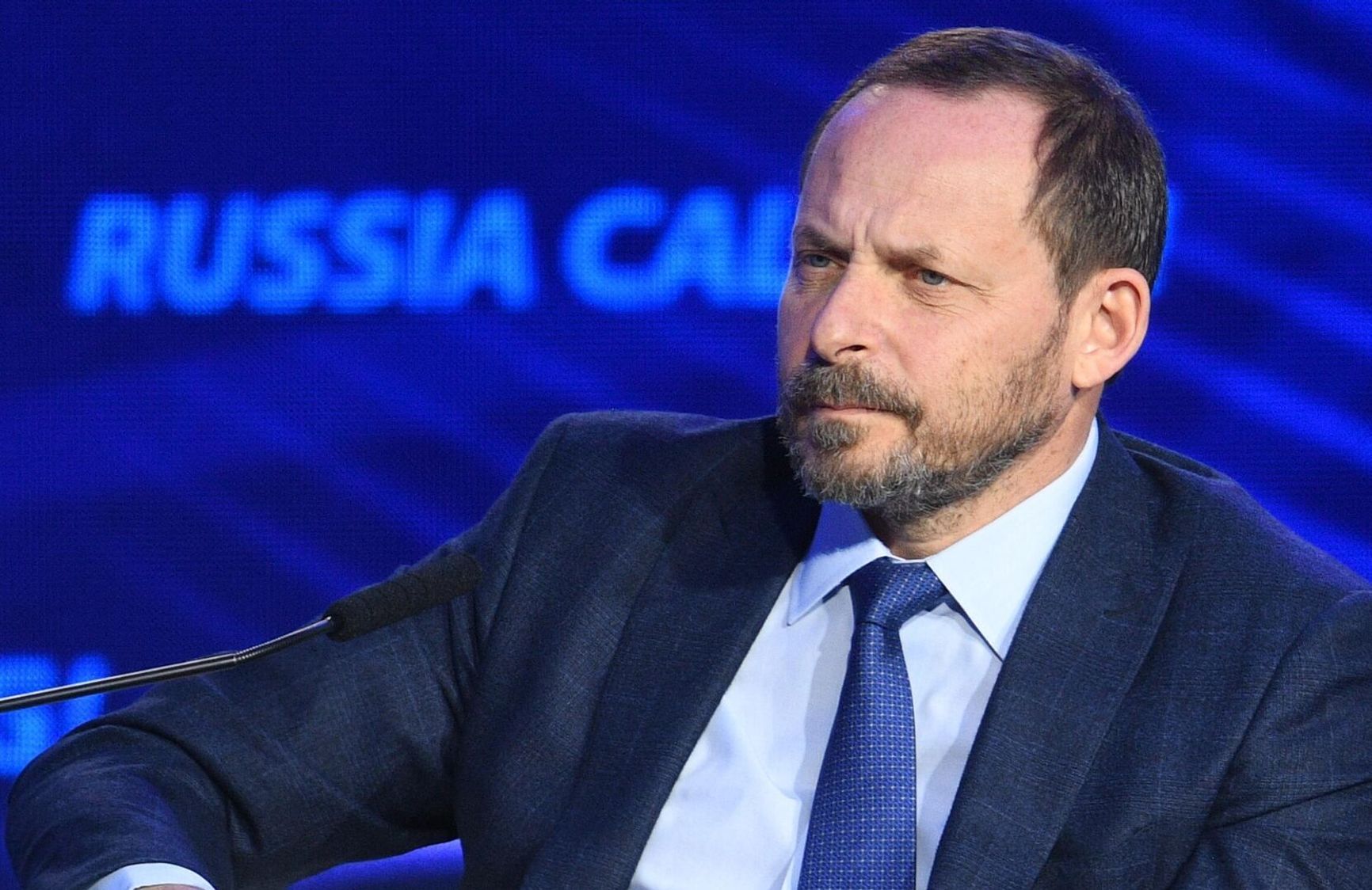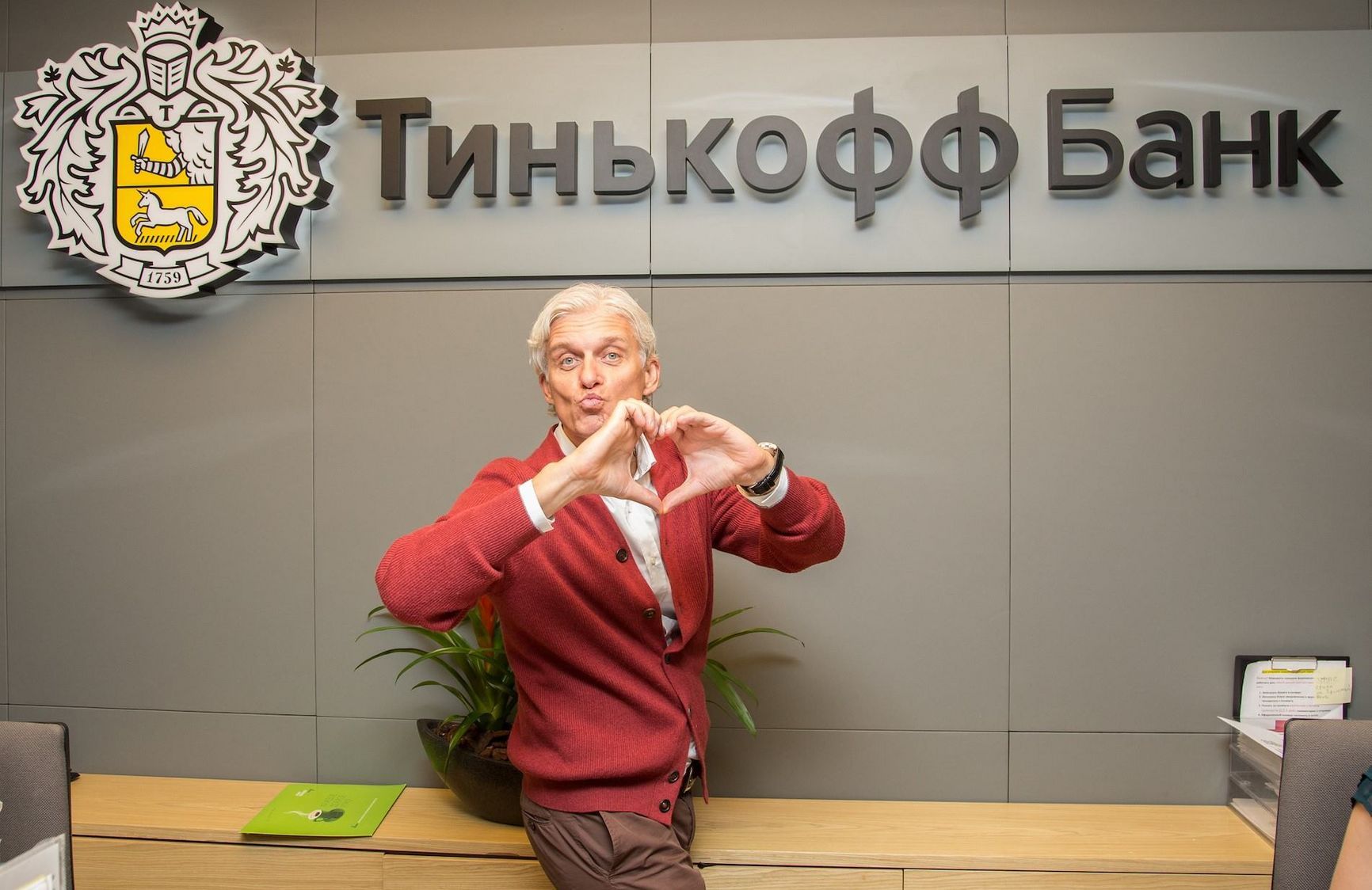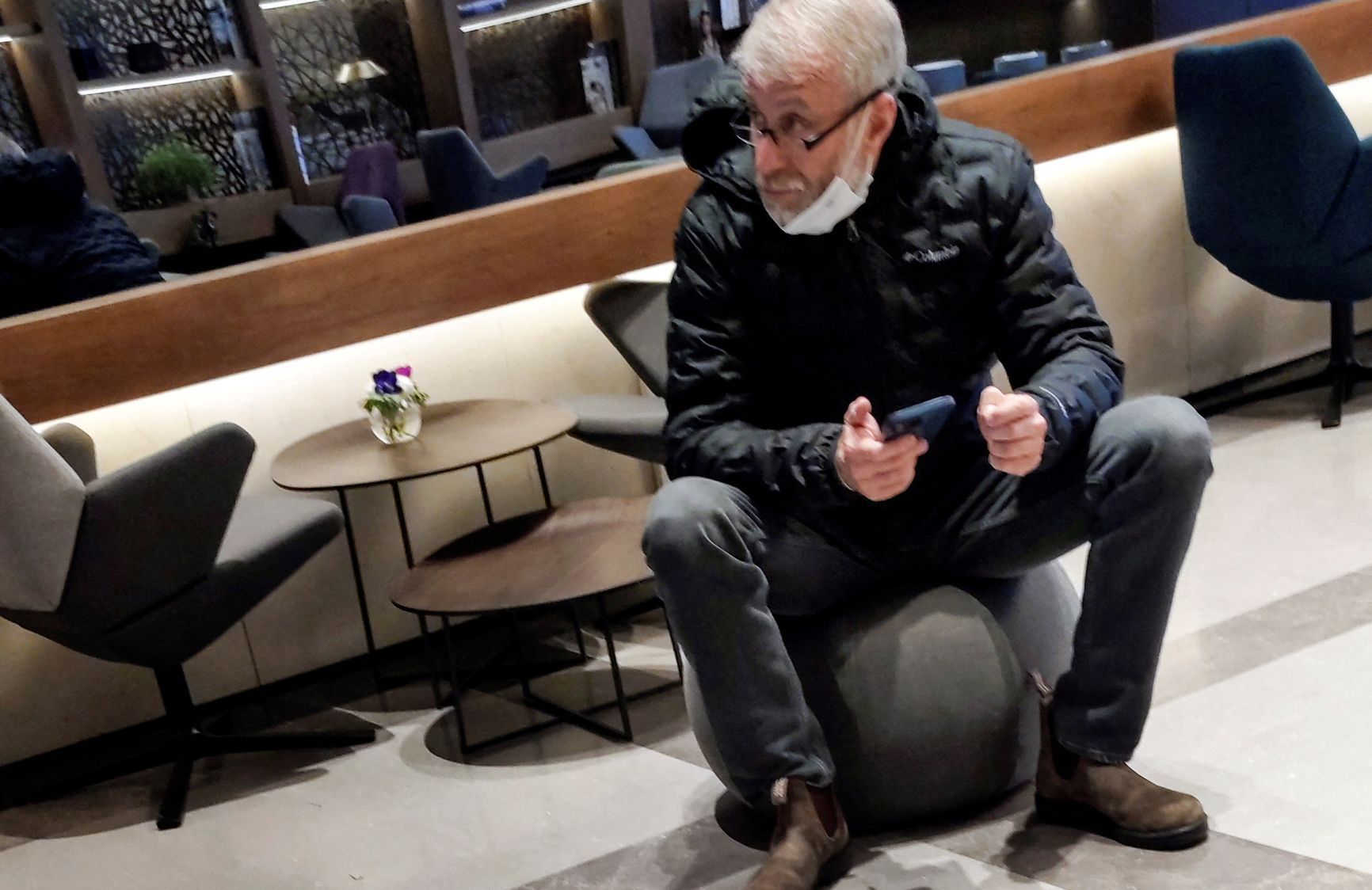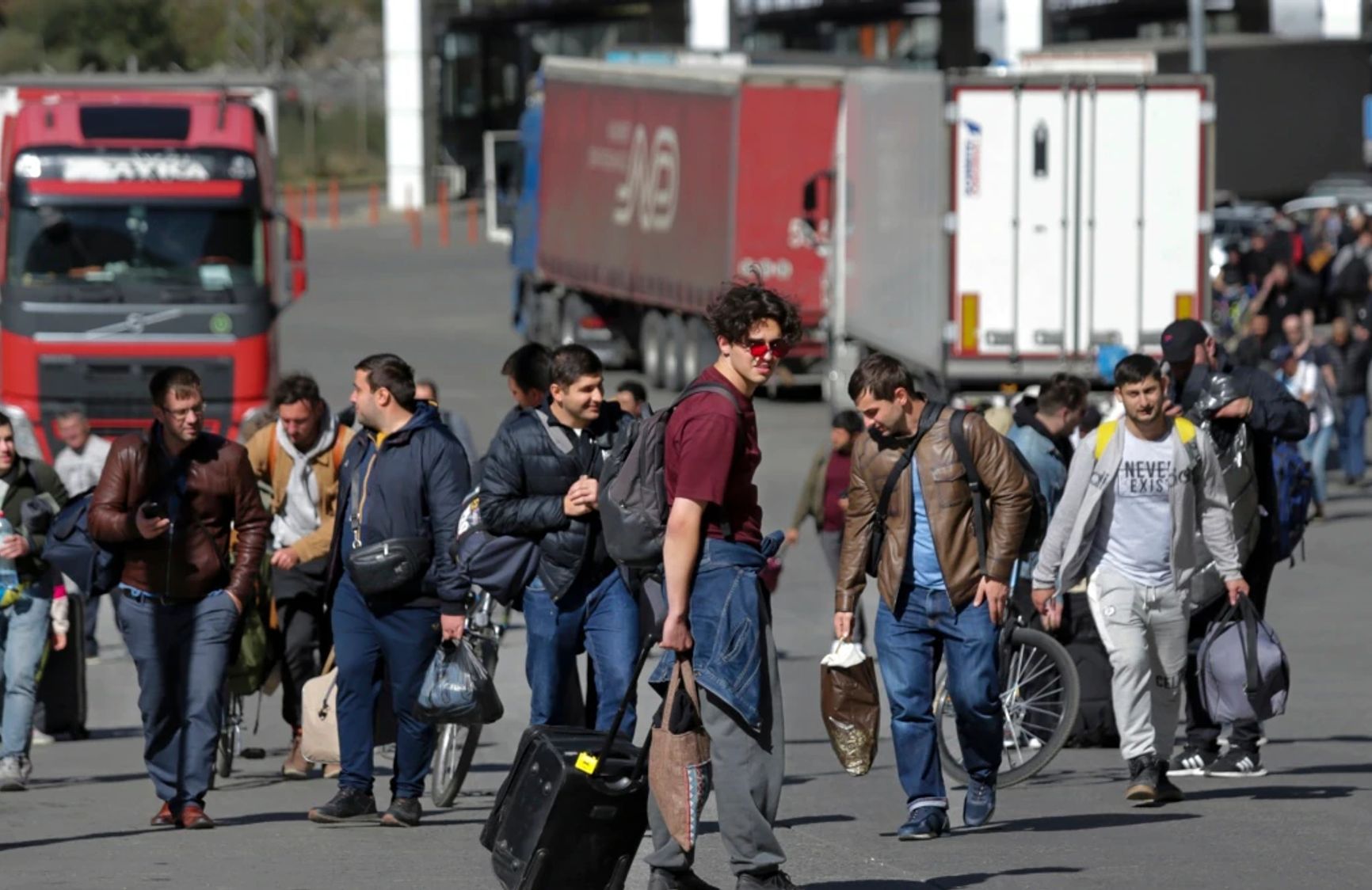

The war in Ukraine took Russian entrepreneurs by surprise. Oligarchs, who were used to profiting from their proximity to the government, began losing their fortunes, and not all businessmen were able to adapt to the new difficult conditions. In contrast, some were able to increase their capital despite the failures of their competitors. The Insider compiled a list of winners and losers in the most unpredictable year in the history of modern Russia.
Losers
Content
:( Arkady Volozh and Russian IT
:( Oleg Tinkov and Russian banking
:( Mikhail Fridman and Pyotr Aven
:( Roman Abramovich
:( Alexei Mordashov and Russian metallurgy
:( A world on fire and the “green” agenda
:) Founder of Wildberries Tatiana Bakalchuk and online retail
:) Vladimir Potanin, new owner of Tinkoff Bank and friend of Vladimir Putin
:) Leonid Mikhelson and Igor Sechin
:) Andrey Guryev, Dmitry Mazepin, Andrey Melnichenko - oligarchs making money from fertilizer production
:) Pavel Durov
:) Neighbors and more
:( Arkady Volozh and Russian IT

Arkady Volozh
The departure of Arkady Volozh, one of the founders of Yandex, from the company marks the end of the Russian IT boom. Endless pressure from the Presidential Administration, coupled with an attempt to push back Google's dominance with the help of administrative resources, were the signs of warning a few years ago that Russian IT was going the wrong way.
Now, instead of young and daring startups, which 5-7 years ago wanted to urgently buy domestic giants like Vkontakte, Mail.ru, Ozon, or Yandex itself, Russia only has the “properly behaving” Sber and the “properly behaving” Yandex. The tech monopolies, led by state-minded liberals Herman Gref and Alexei Kudrin, will build a sovereign Internet, along with their colleagues from Roskomnadzor and the “tame” VKontakte.
Having received an indulgence from Vladimir Putin, which cost him the company's Russia-based assets, Volozh will concentrate on the development of Yandex services abroad. Volozh's voluntary abandonment of his own brainchild, move abroad, and betrayal of his own ideals make for a sad outcome of his long history at Yandex.
“Yandex is the project of my life. And not just mine. All these 30 years we did it together - from scratch, in the face of global competition, striving to act openly and honestly. Thanks to everyone who built and is still building the best tech company in the country,” Volozh said in his farewell address to the staff.
As early as March 2022, Arkady Volozh lost nearly $2 billion and his status as a dollar billionaire, and Yandex shares plummeted by almost 60% at the peak of the Russian invasion.
:( Oleg Tinkov and Russian banking

Oleg Tinkov
The most open Russian businessman lost his main asset - the bank, which exposed Russians to a high level of service, turned the financial market into the most competitive environment even in the presence of state monopolists and, it seemed, radically changed the rules of the game on the market. The broken consensus, which implied loyalty to the government and the unacceptability of criticism, led to a harsh reminder in April 2022 that the rules of the game were being set by one man, and that there would be a heavy price to pay for the insolence.
Freedom from government interference was a key reason for the rise of the Russian banking sector, and it was the reason why money was invested in the domestic financial system and why banks won prestigious global awards every year. What Apple could pass off as know-how in the United States has long become commonplace in Russia, thanks in large part to Tinkoff Bank.
But now the Russian banking sector is doomed to stagnate. Russians continue to become poorer, financial institutions are facing a record outflow of money from individuals, citizens are trying to take money abroad, and banks are trying to somehow compensate for their losses and capital flight. And the government does not need a competitive environment - banks have been assigned the task of financing the budget deficit, and no one cares about quality customer service anymore.
Mikhail Khodorkovsky paid for his impudence not only with his company, but also with his freedom. In this sense, Oleg Tinkov had to pay with less blood, but it turns out that the rules of the game haven't changed in 20 years. The author of one of last spring's key memes lost his status as a billionaire and was forced to sell his bank “for a penny.”
:( Mikhail Fridman and Pyotr Aven

Mikhail Fridman and Pyotr Aven
In March, Mikhail Fridman and Pyotr Aven parted ways with their brainchild, Russia's largest private bank. The billionaires had to leave Alfa Bank's board of directors and then their British business LetterOne, an investment company in which they could no longer participate. Both Fridman and Aven owned real estate in London and had been slowly settling down abroad until the war shattered this idyllic picture.
Biba and Boba of the Russian banking sector were being tossed from side to side in 2022: first Petr Aven was attending Vladimir Putin's meeting with businessmen a few days before the war, then he was violating the sanctions because of his inability to live on £2,500 a month in Britain. For the businessman who made his fortune in the 1990s, the hardships of living without a housekeeper and a personal driver were too severe.
Mikhail Fridman, a native of Lviv, was unable to speak publicly against the war and was even heard moralizing about Oleg Tinkov, which led to the meme: “Misha, I don't give a shit, I just feel it.” Friedman, like Aven, became a dubious newsmaker in 2022: first he was suspected of helping Ukraine, then he denied any assistance, then he complained he couldn't live under the sanctions without eating in a restaurant. His real or alleged attempts to pay for the removal of sanctions while publicly remaining silent also did not do much for the reputation of the key persons behind Alfa-Bank.
Bloomberg estimates Aven's losses at $1.12 billion, while Friedman's at $2.65 billion. The assets of both businessmen are still frozen because of the sanctions, and the businessmen have no guarantees the assets will not be used to rebuild Ukraine.
:( Roman Abramovich

Roman Abramovich
Roman Abramovich deserves to be on the list of losers just because of his financial losses. For 2022, his fortune dropped by 56.66%, or $10.2 billion, to $7.82 billion – he lost more than the rest of the businessmen. However, the money is not the oligarch's heaviest loss in the past year.
The main loss for the businessman was probably the Chelsea soccer club, which Abramovich was forced to sell after being put on the sanctions lists of the UK, EU, Switzerland, Canada, Australia and New Zealand. Abramovich's close ties with British elites did not help him, nor did his informal status as a negotiator between Ukraine and Russia - according to rumors, even Vladimir Zelensky interceded for him. The whole world hoped that thanks to his “access to the body” the oligarch would help stop the hostilities or at least get on the negotiating track, but Abramovich was unable to convince Putin.
Moreover, the former governor of Chukotka literally risked his own life in an attempt to build bridges between the warring countries. The Wall Street Journal claimed that at the end of one round of negotiations, the businessman “showed signs of poisoning,” which all sides then denied, though they could not prove otherwise.
After the summer attempts to contribute to a peaceful resolution of the conflict, Abramovich disappeared from the radar, his name occasionally appearing in the reports about the businessman's yachts sailing to Turkey and Montenegro.
:( Alexei Mordashov and Russian metallurgy

Alexei Mordashov
2022 went badly for the main shareholder of the Russian metallurgical giant Severstal. Alexei Mordashov lost his status of Russia's richest man. The billionaire's fortune sagged by as much as $10.1 billion. Mordashov lost one of his yachts, and the other became a tourist attraction in Vladivostok for a while.
However, the difficult years for the billionaire's main asset, as well as for the entire industry are just beginning. If the Western countries don't drop the sanctions, Russian metallurgists can expect a decade of stagnation/ The optimistic scenario for the steel industry until 2030 has zero growth, while the conservative scenario suggests a 20% drop in all key parameters.
For Mordashov himself, the sanctions allegedly came as a surprise. The businessman admitted that he did not understand why the restrictions had been imposed on him. So much so that over the course of the year he systematically got rid of all the attributes that had caused the restrictions. In May, Mordashov divested from the National Media Group (NMG), which owns the leading propaganda media outlets (Channel One, REN TV, Channel Five, Izvestia, and others). By the end of the year, in December, Mordashov also withdrew from Rossiya, a bank owned by Putin's friends.
His attempts to flirt with the Western public were unsuccessful - the sanctions are still in force, and his unconvincing calls to “stop the bloodshed” went unheeded as expected.
:( A world on fire and the “green” agenda

The war in Ukraine has struck at the achievements of the “green transition.” The fragile agreements reached by the countries with such difficulty began to crumble rapidly after Russia's invasion of Ukraine. Cheap gas from Russia, which was supposed to be a “temporary” fuel during the transition period, is now unavailable, and there is a shortage of energy resources on the global market.
The Russia-induced crisis has forced investors to forget about ESG (a criterion used to test potential investments - how much a company cares about the environment and working conditions), and the problems of global warming have receded into the background. At the same time, in 2022, scientists recorded a record-high temperature of the world's oceans, and immediately 12 European countries updated their temperature records for the entire observation history.
Under such circumstances, countries are once again turning to dirtier fuels. The International Energy Agency (IEA) expects coal consumption and production to increase significantly in 2022; coal consumption in Europe increased 6% last year, reaching record levels. Germany, Austria and other European countries have reactivated coal-fired power plants.
At the same time, Russia is among the top five economies in terms of the amount of harmful air emissions. Under conditions of international isolation and huge war spendings as well as a lack of resources for the development of a “green” economy, the Russia cannot give up fossil fuels, which it currently survives on. The energy crisis provoked by Russia only distances the world from reaching a solution of environmental problems.
Winners
:) Founder of Wildberries Tatiana Bakalchuk and online retail

Tatiana Bakalchuk
At first glance, one can hardly say 2022 was a good year for Russia's richest woman: her fortune dropped from $13 billion to just $2.1 billion. However, don't be fooled: the collapse was caused by the fall of the entire Russian stock market. Bakalchuk's fortune was calculated based on the performance of the online store Ozon, Russia's first marketplace that successfully went public in 2020. Since both businesses operate according to a similar model, one player's going public is an opportunity to assess the position of the other one as well. Since the IPO, Ozon shares have fallen by more than 70%, and in the spring were suspended from trading by NASDAQ altogether.
The drop in fortune amid an overall market slump does not tell anything about Bakalchuk's real situation: in fact, her business and online commerce as a whole are on the rise. In the first 9 months of 2022, the turnover of online commerce in Russia increased almost 1.5 times, and in November Wildberries and Ozon for the first time surpassed the sales of China's AliExpress, which is likely to withdraw from the Russian market altogether. At the same time, Bakalchuk's business accounted fro more than half of the sales.
The country's richest woman can thank foreign companies that have left the Russian market for the favorable conditions: online retailers like ASOS and Amazon have left Russia, many brands have closed their stores, and it has become harder and more expensive for competitors to deliver goods due to sanctions. Domestic online stores, with Bakalchuk's businesses at the forefront, have effectively become monopolists, and her reported fortune is likely to grow as the market expands.
:) Vladimir Potanin, new owner of Tinkoff Bank and friend of Vladimir Putin

Vladimir Putin and Vladimir Potanin
The fortune of Potanin, who owns Norilsk Nickel, is estimated at $28.5 billion - down $2.37 billion for the year. However, this year Putin's friend has made two extremely successful deals that he would not have been able to pull off had he lived in a country with a market economy and democratic institutions. Potanin purchased two big banks at a huge discount: Tinkoff and Rosbank. Both had showed stable profits even during the crisis years, and Tinkoff was considered a leader not only in the domestic, but also in the international market.
Oleg Tinkov, the bank's founder, said he sold his stake in the business for 3% of the market value and under duress due to his anti-war stance; the businessman had no choice, because the bank would have been snatched from him anyway. The terms of the Rosbank deal remain secret, but Potanin only got that asset thanks to the hasty departure from Russia of the French Societe Generale.
Nornickel is having a tough time: its net profit fell by 8% due to a “sharp increase in production costs” and “managerial expenses.” However, two new banking assets will help Potanin win back the lost amount next year - especially if the banking sector finally recovers from the sanctions shock. The more so because neither Tinkoff nor Nornikel have been sanctioned, despite Potanin's proximity to Putin. And Potanin's own money is still attractive for U.S. investment banks – Goldman Sachs still provides services to Potanin's charitable foundation.
:) Leonid Mikhelson and Igor Sechin

Leonid Mikhelson and Igor Sechin
Over the last year Mikhelson lost almost $8 billion, his fortune dropped to $24.6 billion. However, the events of 2022 helped his key brainchild, Novatek, squeeze out Gazprom itself.
In 2022, Gazprom lost most of its gas supply routes to Europe: one of the branches of the Ukrainian GTS is inoperable, the Yamal-Europe pipeline stands idle, and the Nord Streams no longer exist at all. Gazprom's deliveries to non-CIS countries dropped 45.1%, and its production dropped 19.6%. Under such conditions Novatek will have no trouble pushing the former monopoly aside: in the third quarter of this year Novatek's international LNG sales grew by 12.9%.
The policy of Gazprom, which for a long time tried to portray itself as a commercial company rather than a state-owned one, resulted in its direct competitor profiting from the monopolist's failures. The year 2023 has opened up unprecedented prospects for Novatek - after all, no sanctions have been imposed on Russian gas, which means that Gazprom's significant European market share may go to Novatek.
The head of Rosneft, Igor Sechin, who is very much afraid someone might find out how much he actually earns, and regularly sues every publication that comes up with any data on his income, has a chance to get a slice of the Gazprom pie together with his colleagues from Novatek. The country's main oil company has long been eager to break its monopoly on gas supplies. Before the war Rosneft sought access to Nord Stream 2; now it wishes to gain access to Power of Siberia 2. Time will tell whether the company succeeds in 2023.
:) Andrey Guryev, Dmitry Mazepin, Andrey Melnichenko - oligarchs making money from fertilizer production

Dmitry Mazepin
Domestic fertilizer producers - Phosagro (owned by Andrei Guriev), Uralkhim (Dmitry Mazepin's company), and Evrokhim (After being hit by the sanctions Andrei Melnichenko transferred the company to his wife, Alexandra, who later fell under the sanctions, too) - earned the most profits from the war.
Over the first nine months of 2022, Phosagro's net profits have almost doubled; Mazepin expects Uralkhim to earn $3.8 billion in profits; and Evrokhim has actually reported nearly a five-fold increase in net profits. Guriev, the owner of Phosagro, was the only Russian billionaire who managed to boost his fortune by $1.2 billion.
The rise in income is related to the soaring prices of fertilizers, which have been in short supply because of the war. Some countries faced food security risks and the threat of famine. The industry was even exempted from Western sanctions due to the UN patronage - the supplies were deemed essential. In September, UN Secretary General António Guterres reminded that all obstacles to the export of fertilizers must be removed.
Mazepin, for example, is now negotiating with the UN and reporting personally to Vladimir Putin, while Melnichenko has gone to Africa, where he is lobbying for a mitigation of the sanctions through local politicians. In December, the EU allowed assets and funds of “certain persons” who play an important role in the agricultural trade to be unfrozen. Presumably, those persons are Melnichenko, Guriev, Mazepin, as well as Vadim Moshkovich (Rusagro) and Vyacheslav Kantor (Akron). When the last obstacles are removed, domestic fertilizer producers will be able to earn even more due to record-high prices.
:) Pavel Durov

Pavel Durov
The cofounder of VKontakte used his personal example to show that the only way for Russian IT to save itself from degradation is to emigrate and create a business abroad. Many Russian businessmen were holding out to the last and tried to build their business in Russia. Oleg Tinkov's example has demonstrated what it can lead to. Durov achieved great success only after he left Russia.
According to the businessman himself, he gave up his Russian passport and now has three nationalities: the UAE, the island state of St. Kitts and Nevis, and France. With a fortune of $15.1 billion, Durov became the richest man in the Emirates for the second time in a row, and recently had an audience with the country's leaders.
Pavel's main brainchild, the messenger Telegram, finally cemented its status as a global, rather than a regional, player in 2022. The app's user base exceeded 700,000 people, which coincided perfectly with the launch of advertising and paid subscriptions with extended features. Durov himself said that in order to “break even”, he needed about 2.5% of the user base, i.e. approximately 17.5 million users, to buy a subscription. Currently, only 1 million users have bought one, but, according to Durov, the subscription revenues are growing rapidly and will soon be able to compete with advertising revenues.
Whereas prior to 2022 many people associated Telegram with dubious information that no one was able to verify, the war in Ukraine and the harsh censorship by the Russian government turned the app into one of the few sources of objective information about what was happening on the frontline.

At the Russia-Georgia Upper Lars border crossing
:) Neighbors and more
The war unleashed by Russia, the repressive government policy and chaotic “mobilization” forced many citizens to leave the country; because of that, other countries, to which Russians moved their capitals, benefited. Turkey's GDP might have grown by 5.3% by the end of 2022 (which, however, is not going to save the country from record-high inflation, nor its currency from falling), Kazakhstan's and Uzbekistan's by 3%, Kyrgyzstan's by 6%, Azerbaijan's by 4.3%.
The economies of Armenia and Georgia benefitted the most from the mass emigration of Russians - the conditions in these countries are the most suitable for relocation: no visa required, and the allowed periods of stay are six months and one year, respectively. Before the war in Ukraine, the IMF expected the Georgian economy to grow by 5.9%, now it expects a 10% growth. In total, Russians have transferred over a billion dollars to Georgia, and there is almost $700 million in Russian accounts with Georgian banks.
Armenia expects a 13% GDP growth, and the head of the Central Bank has explicitly stated that the forecast has been improved because of the influx of Russians into the country. “We've seen a 25% increase in human capital in the IT sphere. Talented, well-educated people are moving to Armenia, and this may have a lasting effect,” says Martin Galstyan, Central Bank Governor. The national currencies of Georgia and Armenia, thanks to the inflow of money, became world leaders in terms of growth. The Armenian dram grew by more than 22% against the dollar, while the Georgian lari grew by 16%.